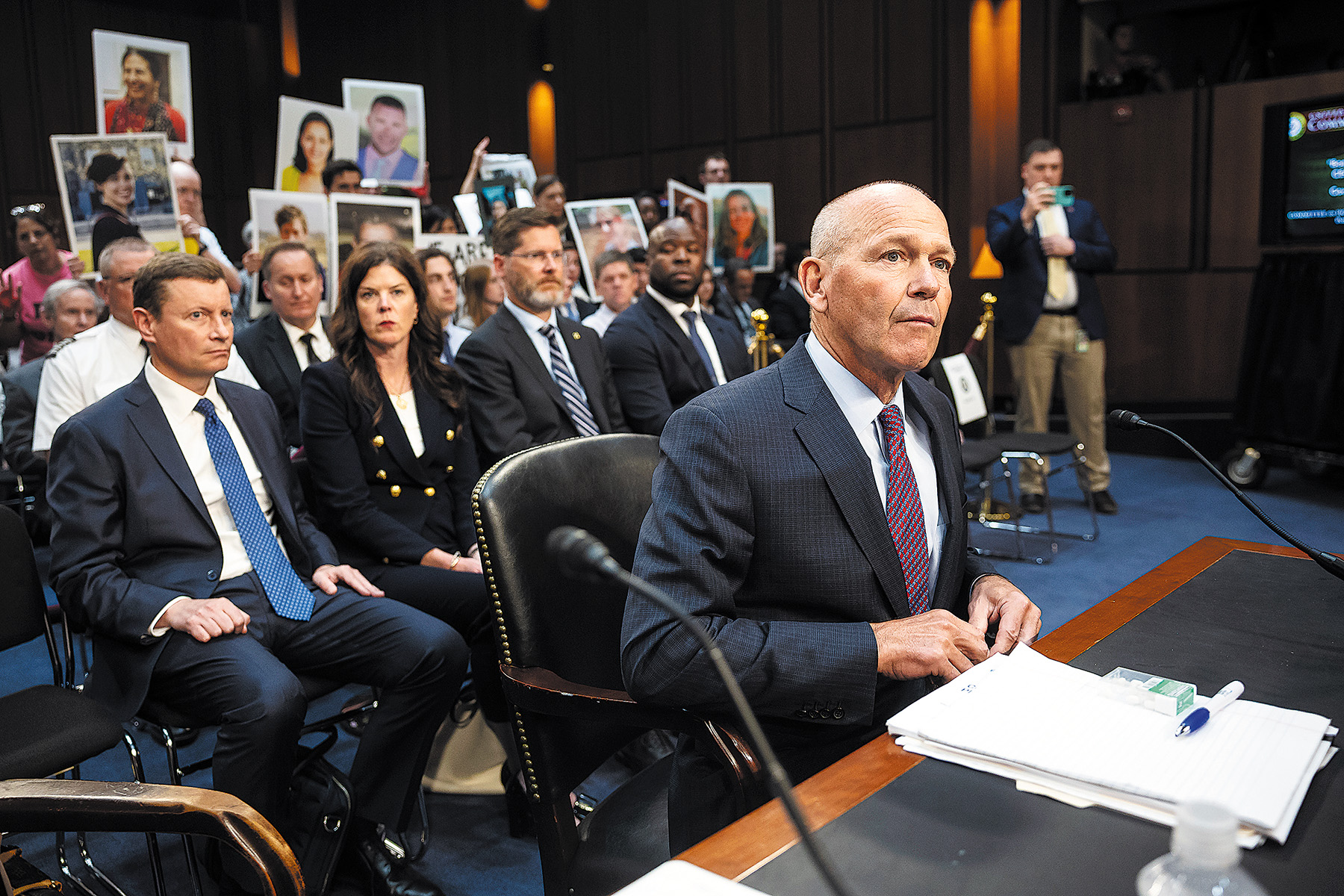CEO Calhoun faces heat at hearing, admits company retaliating against whistleblowers

The CEO of troubled aircraft maker Boeing faced blunt questioning in Washington on June 18 over a string of fatal crashes, manufacturing problems, and whistleblower warnings. During a congressional hearing, the executive admitted that the company has retaliated against whistleblowers.
Chief Executive David Calhoun appeared before the Senate Permanent Subcommittee on Investigations, chaired by Senator Richard Blumenthal, on Capitol Hill.
The senator opened the hearing by recognizing the relatives of prior Boeing jet crash victims and the family of a whistleblower, John Barnett, who died in March.
“This hearing is a moment of reckoning,” Blumenthal said. “Boeing needs to stop thinking about the next earnings call and start thinking about the next generation.”
“We have more than a dozen whistleblowers by this point, and we encourage more to come forward,” the senator said early in the hearing.
Calhoun’s appearance was the first before Congress by a high-ranking Boeing official since a door plug blew out of a 737 MAX plane during an Alaska Airlines flight in January.
Before giving his prepared opening statement, Calhoun stood and faced the people in the audience who held poster-sized photos of some of the 346 people who died in crashes of Boeing MAX jets in 2018 and 2019. He heard shouts of “Shame!” as he entered the hearing room.
“I apologize for the grief that we have caused,” he said.
Senators asked Calhoun, who faced more than two hours of questioning, if Boeing retaliated against employees who reported concerns and if he had ever spoken with any whistleblowers. He replied that he had not, but said he would.
Calhoun acknowledged that the company had retaliated against employees who raised safety concerns, said CNN and other media reports.
Senator Josh Hawley repeatedly asked Calhoun about what he did to deserve his salary.
Calhoun, 67, who took over as CEO in 2020, has said he plans to retire at the end of the year. He had compensation of $32.8 million last year, a 45 percent increase over the $22.6 million he received the previous year.
“You are eliminating safety procedures. You are sticking it to your employees,” Hawley said. “You are cutting back jobs.”
Asked why he had not resigned, one of the CEO’s replies was that he was “proud of every action we’ve taken”. Hawley replied, “Frankly sir, I think it’s a travesty that you’re still in your job.”
Before Calhoun arrived on Capitol Hill, the Senate panel released a 204-page report with new allegations from another whistleblower who said he worries that “nonconforming” parts — ones that could be defective or are not properly documented — are going into 737 MAX jets.
Sam Mohawk, a quality assurance investigator at the 737 assembly plant near Seattle, claimed Boeing hid evidence of the situation after the Federal Aviation Administration (FAA) informed the company a year ago that it would inspect the plant.
Mohawk told the Senate subcommittee that the number of unacceptable parts has jumped since production of the MAX resumed. He said the increase led supervisors to tell him and other workers to “cancel” records that indicated the parts were not suitable to be installed.
In the past week, the FAA said it was investigating how falsely documented titanium parts got into Boeing’s supply chain, and federal officials examined “substantial” damage to a Southwest Airlines 737 MAX after a mid-flight control issue.
FAA Administrator Mike Whitaker said last week in a testimony on Capitol Hill that the agency was partly responsible for the safety issues at Boeing, saying it had been “too hands-off” in its oversight.
“Let me also acknowledge the FAA should have had much better visibility into what was happening at Boeing before Jan 5,” he said in his opening remarks to the Senate commerce committee on June 13 in reference to the Alaska Airlines incident.
The Justice Department decided last month that Boeing violated a 2021 settlement that shielded the company from prosecution for fraud for allegedly misleading regulators who approved the 737 MAX.
Prosecutors have until July 7 to decide what to do next.
Blumenthal said at the start of the June 18 hearing that he believes the Justice Department should prosecute the company.
Family members of those who died in the 2019 MAX jet crash in Ethiopia have urged the Justice Department to prosecute.
“We will not rest until we see justice,” said Zipporah Kuria, whose father died in the crash. She said the United States government should “hold Boeing and its corporate executives criminally responsible for the deaths of 346 people”.
“Where is accountability when the CEOs of Boeing, management of Boeing, are walking free with millions?” asked Clariss Moore, whose daughter died in one of the MAX crashes, as reported by The Wall Street Journal.
Agencies contributed to this story.


